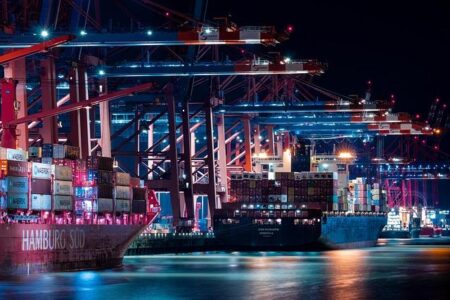Japan has officially endorsed Uyeno Transtech’s latest innovation: a hydrogen-ready oil tanker designed to revolutionize maritime fuel technology. This strategic backing marks a significant step forward in Japan’s commitment to sustainable shipping practices and the broader adoption of hydrogen as a clean energy source. The collaboration signals a notable shift in the maritime industry, highlighting efforts to reduce carbon emissions while maintaining operational efficiency on the high seas.
Japan Supports Uyeno Transtech’s Innovation in Hydrogen-Ready Oil Tankers
Japan’s commitment to advancing green maritime technology has taken a significant leap forward with its support for Uyeno Transtech’s groundbreaking hydrogen-ready oil tanker project. This initiative represents a crucial step towards decarbonizing the shipping industry by integrating hydrogen fuel cell technology into traditional oil tanker designs. The collaboration is expected to not only reduce greenhouse gas emissions but also set a new global standard for sustainable marine transport.
Key features of the hydrogen-ready oil tanker include:
- Dual-fuel propulsion system capable of switching between conventional fuel oil and hydrogen
- Advanced fuel cell integration for cleaner energy production onboard
- Enhanced safety measures tailored specifically for hydrogen storage and handling
- Innovative hull design optimized for efficiency and reduced energy consumption
This cooperation is backed by government funding and technical guidance, fostering a collaborative ecosystem that accelerates innovation in Japan’s maritime industry.
| Feature | Impact | Status |
|---|---|---|
| Hydrogen Fuel Cells | Cut COâ‚‚ emissions by up to 40% | In development |
| Dual-Fuel Engines | Flexible fuel use | Prototype tested |
| Safety Systems | Mitigate hydrogen risks | Certified |
In-Depth Analysis of Technological Advancements Driving Maritime Fuel Transition
Japan’s maritime sector is witnessing a transformative shift, propelled by cutting-edge technologies that enable a smooth transition from conventional fuels to alternative, sustainable energy sources such as hydrogen. Central to this evolution is the integration of hydrogen-ready propulsion systems, which combine traditional oil tanker designs with modular fuel cell technology. This hybrid approach ensures operational flexibility while significantly reducing greenhouse gas emissions. Advanced onboard hydrogen storage and safety mechanisms enable these vessels to comply with rigorous international maritime regulations, marking a crucial step toward decarbonizing ocean freight.
Several key technological innovations underpin this transition, including:
- Fuel Cell Integration: Compact, high-efficiency fuel cells that provide clean power with zero emissions.
- Hydrogen Storage Solutions: Lightweight, high-pressure tanks engineered for marine environments.
- Digital Energy Management Systems: Smart control platforms optimizing fuel consumption and power distribution onboard.
| Technology | Impact | Status |
|---|---|---|
| Hydrogen Fuel Cells | Zero emissions, high efficiency | Commercial pilot phase |
| Modular Storage Tanks | Enhanced safety, increased capacity | Prototype testing |
| Energy Management Systems | Optimized fuel use, reduced costs | Deployment in select vessels |
Strategic Recommendations for Accelerating Adoption of Hydrogen Power in Shipping Industry
To fast-track the integration of hydrogen power within the shipping industry, collaboration between governments, shipbuilders, and energy providers must be intensified. Public-private partnerships offer a pragmatic pathway to share the high upfront costs associated with hydrogen infrastructure and vessel modification. Additionally, regulatory frameworks need urgent revision to accommodate the unique safety and operational requirements of hydrogen-fueled ships without compromising efficiency or environmental standards.
Key focus areas for stakeholders should include:
- Investment in port-side hydrogen refueling facilities to ensure seamless supply chains and reduce downtime for vessels.
- Incentives for retrofitting existing fleets to enable more immediate reductions in carbon emissions.
- Standardization of hydrogen storage and handling protocols to promote safety and interoperability across international waters.
| Recommendation | Expected Impact | Stakeholders |
|---|---|---|
| Port Refueling Infrastructure | Reduced operational delays | Governments, Port Authorities |
| Fleet Retrofitting Incentives | Faster carbon footprint reduction | Shipowners, Regulators |
| Safety Standardization | Enhanced operational safety | Industry Bodies, Classification Societies |
To Wrap It Up
Japan’s endorsement of Uyeno Transtech’s hydrogen-ready oil tanker marks a significant step toward integrating clean energy solutions within the maritime industry. As the world navigates the shift to sustainable fuels, this development highlights Japan’s commitment to innovation and environmental responsibility. Moving forward, the success of such initiatives could set new standards for global shipping, driving the adoption of hydrogen technologies and reducing the sector’s carbon footprint.




